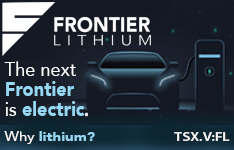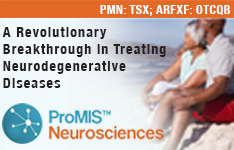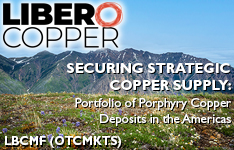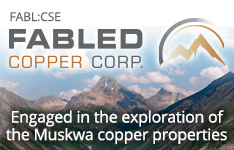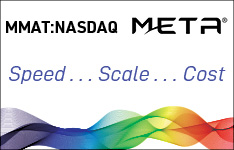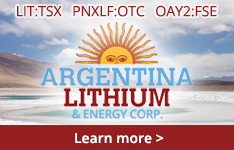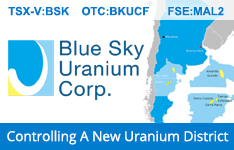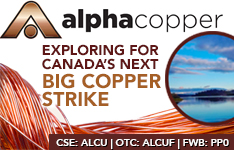Clinical-stage biotherapeutics company 4D Molecular Therapeutics Inc. (FDMT:NASDAQ), which focuses on the development of genetic medicines that target specific cells and tissue to combat and eradicate rare and large market diseases in the areas of ophthalmology, cardiology, and pulmonology, yesterday announced "interim clinical data from Cohort 1 of the Phase 1/2 clinical trial of intravitreal 4D-150 for wet AMD."
The firm advised that the data presented pertains to results from five patients enrolled in Cohort 1 of the study through the October 13, 2022, cutoff date.
The company's Co-Founder and CEO David Kirn, M.D., commented, "This clinical data on 4D-150 marks an important milestone for 4DMT."
The company noted that "the data focused on safety, tolerability, aflibercept transgene expression and anti-VEGF clinical activity of the 4D-150 genetic medicine."
The company's Co-Founder and CEO David Kirn, M.D., commented, "This clinical data on 4D-150 marks an important milestone for 4DMT . . . We are developing 4D-150 for the treatment of large and sustainable markets in ophthalmology, including wet AMD and diabetic macular edema. We believe these results further validate the potential for both our intravitreal R100 vector for other large market eye diseases and our Therapeutic Vector Evolution platform as an engine to grow our product pipeline."
A Principal Investigator in the 4D-150 PRISM clinical trial and Managing Partner and Director of Clinical Research at Sierra Eye Associates, Clinical Associate Professor at the University of Nevada, Reno, Arshad M. Khanani, M.D., M.A., FASRS, stated, "In the ongoing Phase 1/2 PRISM trial, I'm encouraged by the excellent safety and tolerability of intravitreal 4D-150 in patients with wet AMD. At the low dose of 3E10 vg/eye, we have seen a clinically significant reduction in annualized anti-VEGF injection rate in high-need patients who previously required very frequent anti-VEGF injections."
"Utilizing a novel R100 vector and a dual transgene payload, 4D-150 is the first retinal gene therapy that is designed to inhibit all four VEGF-related molecules that drive angiogenesis, Dr. Khanani added."
The firm indicated that "4D-150 is comprised of our targeted and evolved intravitreal vector, R100, and a payload that expresses aflibercept and a VEGF-C RNAi. This dual transgene payload inhibits 4 angiogenic factors: VEGF A, B, C, and PlGF. 4D-150 is designed for low-dose intravitreal delivery."
The company stated that it invented R100 and utilizes this Nobel Prize-winning technology as an integral part of its Therapeutic Vector Evolution (TVE) platform. The TVE platform facilitates "intravitreal delivery, penetration through the internal limiting membrane barrier, and efficient transduction and transgene expression within retinal cells in a broad distribution across the entire retina."
The firm explained that the Phase 1/2 PRISM clinical study was designed to evaluate the use of Intravitreal 4D-150 in treating patients diagnosed with wet age-related macular degeneration (wet AMD). This Phase 1/2 trial includes 50 participants and will initially focus on determining recommended dosage amounts. During Phase 2, patients will be randomized to receive either one of two dose levels of 4D-150 vs. aflibercept in a 2:2:1 ratio.
4D Molecular Therapeutics advised that it has completed the dose exploration stage and has enrolled a total of 15 patients who will be split into three equal-sized cohorts. The firm noted that each cohort will be administered one of three doses and advised that these dosage levels were approved by the trial's Data Safety Monitoring Committee.
The company advised that the first five patients in Cohort 1 were administered a single intravitreal 4D-150 dose of 3E10 vg/eye. These participants were also treated with topical corticosteroids that were tapered over a 20-week period. During the study, 4D-150 was found to be safe and well tolerated, and no serious adverse events were reported. In addition, the company stated that to date, there were no clinically significant incidents of intraocular inflammation, endophthalmitis, retinal vasculitis, retinal artery occlusion, choroidal effusions, and hypotony reported.
Cohort 1 was comprised of high-need patients who had previously received an average of 11 anti-VEGF injections in the 12 months prior to treatment with 4D-150.
The report highlighted that after patients were given intravitreal 4D-150, "the annualized anti-VEGF injection rate was reduced by 96.7%," and mentioned that "80% of patients have remained anti-VEGF injection-free, meaning they have not required any supplemental aflibercept injections to date, with follow up to date of ~40, 36, 32 or 16 weeks."
The firm stated that it intends to move forward with enrollment in the randomized portion of the Phase 2 trail in Q1/23. The company anticipates that participants will be given 4D-150 in a dose level of 3E10 to 1E10 vg/eye. 4D Molecular Therapeutics said it expects to release further data from all three cohorts in the dose exploration trial in Q2/23.
The company explained that "wet AMD is a type of macular degeneration where abnormal blood vessels (choroidal neovascularization or CNV) grow into the macula, the central area of the retina."
These blood vessels cause swelling and edema of the retina, bleeding, scarring, increased visual distortion, and decreased acuity. A regular course of intravitreal anti-VEGF medications may help prevent or prolong the onset of blindness in most wet AMD patients, but if left untreated will likely result in severe and irreversible vision loss.
4D Molecular Therapeutics is a clinical-stage genetic medicines firm based in Emeryville, Calif. that has built a transformative discovery platform that it calls 'Therapeutic Vector Evolution' that utilizes a disease-specific approach to biotherapeutics discovery and development. This methodology allows the company to magnify and enhance vectors that are designed to target specific types of tissues that are associated with underlying diseases. The process allows the company to deliver genes to specific cells and tissues in the body to address both rare and more common diseases. 4DMT is currently working on developing five product candidates for use in ophthalmology, cardiology (including Fabry disease), and pulmonology.
4D Molecular Therapeutics started yesterday with a market cap of around US$436.97 million with approximately 32.39 million shares outstanding and a short interest of about 8.95%. FDMT shares opened 16% higher yesterday at US$15.65 (+US$2.16, +16.01%) over the previous day's US$13.49 closing price. The stock traded yesterday between US$15.37 and US$19.30 per share and closed for trading at US$18.69 (+US$5.20, +38.55%).
| Want to be the first to know about interesting Biotechnology / Pharmaceuticals investment ideas? Sign up to receive the FREE Streetwise Reports' newsletter. | Subscribe |
Disclosures:
1) Stephen Hytha wrote this article for Streetwise Reports LLC and provides services to Streetwise Reports as an independent contractor. He or members of his household own securities of the following companies mentioned in the article: None. He or members of his household are paid by the following companies mentioned in this article: None.
2) The following companies mentioned in this article are billboard sponsors of Streetwise Reports: None. Click here for important disclosures about sponsor fees.
3) Comments and opinions expressed are those of the specific experts and not of Streetwise Reports or its officers. The information provided above is for informational purposes only and is not a recommendation to buy or sell any security.
4) The article does not constitute investment advice. Each reader is encouraged to consult with his or her individual financial professional and any action a reader takes as a result of information presented here is his or her own responsibility. By opening this page, each reader accepts and agrees to Streetwise Reports' terms of use and full legal disclaimer. This article is not a solicitation for investment. Streetwise Reports does not render general or specific investment advice and the information on Streetwise Reports should not be considered a recommendation to buy or sell any security. Streetwise Reports does not endorse or recommend the business, products, services or securities of any company mentioned on Streetwise Reports.
5) From time to time, Streetwise Reports LLC and its directors, officers, employees or members of their families, as well as persons interviewed for articles and interviews on the site, may have a long or short position in securities mentioned. Directors, officers, employees or members of their immediate families are prohibited from making purchases and/or sales of those securities in the open market or otherwise from the time of the decision to publish an article until three business days after the publication of the article. The foregoing prohibition does not apply to articles that in substance only restate previously published company releases.
6) This article does not constitute medical advice. Officers, employees and contributors to Streetwise Reports are not licensed medical professionals. Readers should always contact their healthcare professionals for medical advice.











